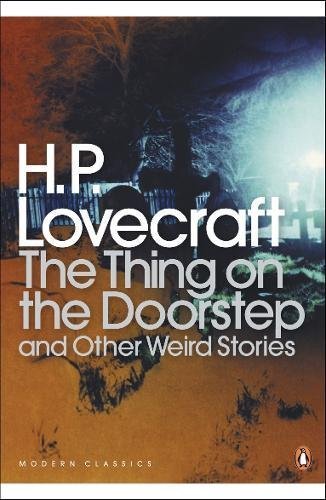What do you think?
Rate this book


Paperback Bunko
First published January 1, 1937




'It is true that I have sent six bullets through the head of my best friend, and yet I hope to shew by this statement that I am not his murderer.'That's a promising beginning. The narrator Daniel Upton is perfectly aware how his explanation might sound. He even asks himself whether he was misled but, considering that others too have their own experiences of his friend Edward Derby and his wife Asenath, that's highly unlikely. One expects a lot from a story as soon as it is revealed that the wife is from Innsmouth. Lovecraft's lovers know what that means.



 A month of Halloween 2015 reads:
A month of Halloween 2015 reads: